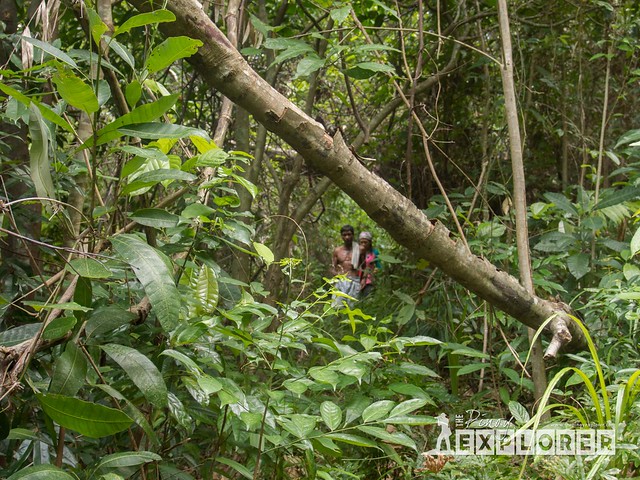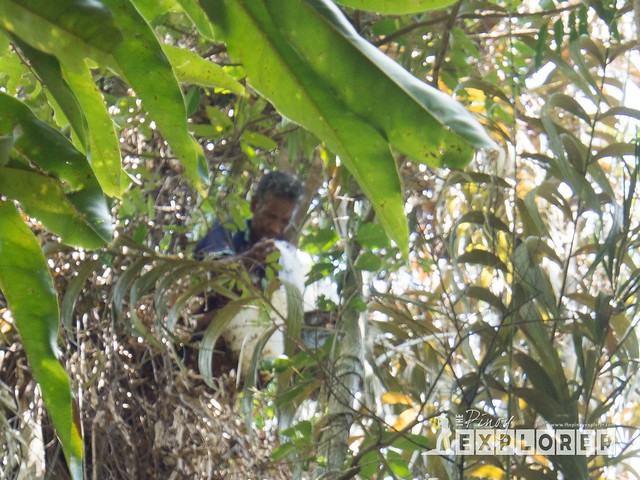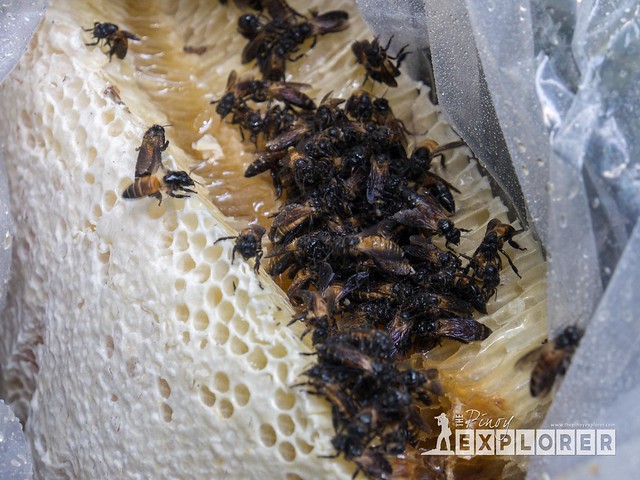Page was explored times
Midway into the dense growth of tall grass and shrubbery amidst towering trees, we followed an unclear trail. But I trusted the two Tagbanua men who led the way. They knew exactly where they were going. In between huffing and puffing, I often found myself asking "Are we there yet?" It was seemingly annoying but I was not only the one asking. Loreta, who worked for Nagkakaisang Tribo ng Palawan (NATRIPAL) who also comes from the Tagbanua tribe asked the same question.

"Malapit na. [We are near.]" was their usual answer. And we continued hiking uphill for nearly an hour. There was sweat all over. We were pricked and cut by the grass, bushes, and thorns along the way. Save for the arm covers, hat and trekking pants, I was spared from more minor cuts and pricks.
Then the leader blurted out, "Nandito na tayo! [We're here!]". But "here" had a different definition after all. From uphill mode, we started descending. It was a bit dangerous because of the protruding sharp branches that fell from the trees. It was also slippery because it rained the day before we went to this place called Marofinas. We took careful steps. We slipped in some parts until finally, we reached the marked place where they found the beehives. They had to put their markers to prevent others from collecting the hives. The one who finds the colony has the sole right to it that other members of the tribe must respect. There were two beehives in the area. One is located on the top of the tree surrounded by thorny rattan vines. One is just behind us, inside a hole in a fallen and rotting tree.


I was worried about bee stings. I made sure I brought with me antihistamines just in case I get stung. I also made sure I did not wear any fragrance (not even an alcohol) because sweet scent attracts bees. Good heavens the species living in both hives were the kind ones.
Like any Tagbanua, the leader uttered some form of prayer and asking permission from the gods they believe to be lording over and protecting the area. They believe that praying before they gather honey makes the bees kinder. If they come home without any sting, that means the gods and deities gave their blessings and permission to the ones who gather, including us. Included in the prayer is for the gods and deities to help the bees produce more honey.


It took the man only several minutes to climb and cut the beehive up the tree, and a few minutes on the fallen tree. However, as a sustainable practice, they only cut two-thirds of the hive. This will allow the bees to regenerate their hive and continue thriving in the area. Otherwise, the bees will move to another place.
Honey is abundant during the dry season and flowering season. If it always rains, honeybee production is affected. The taste of honey depends on the flower of the trees around their colony.

This was my first time to witness honey gathering. Indeed, this was one for the books. I did not regret just passing by the famous Puerto Princesa Underground River (PPUR) and see it disappear right before my very eyes--and proceeding to this place instead. I was just a five-minute boat ride away from the PPUR, but this once in a lifetime experience beckons. I could always go back to Palawan for the PPUR--in my own sweet time and outside work. Communing with the Tagbanuas and witnessing their way of life was far more important.
This thing was work.
More Photos in Flickr Album
Tweet
Do you like this article? Like us on Facebook, too!
Thank you for visiting The Pinoy Explorer! You can also like The Pinoy Explorer on Facebook! All contents of this blog, or otherwise stated, are copyrighted. For syndication, use of articles and photos, send me an e-mail. Thank you!



2 comments :
How I wish your work is mine! Woooott! Kasta gayam iti itsura na no asideg. Good thing the bees are kind.
Edmar, indeed, it is a blessing! Yes, the bees are kind, fortunately!
Post a Comment